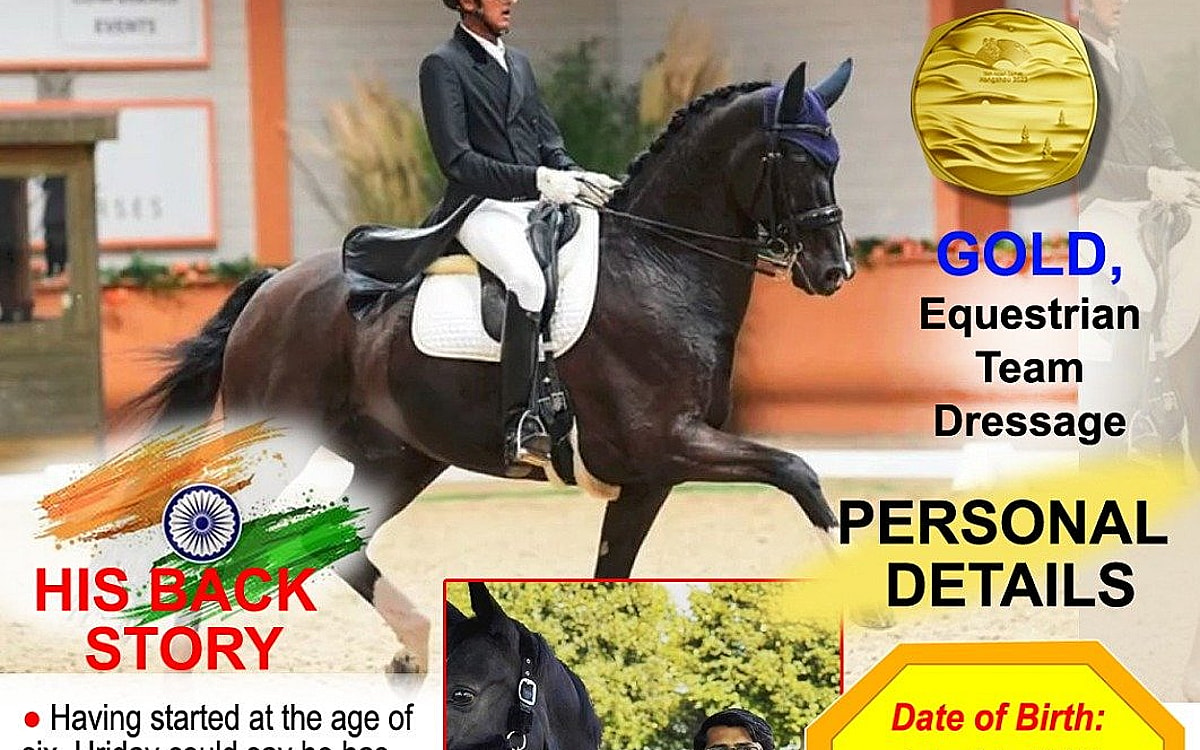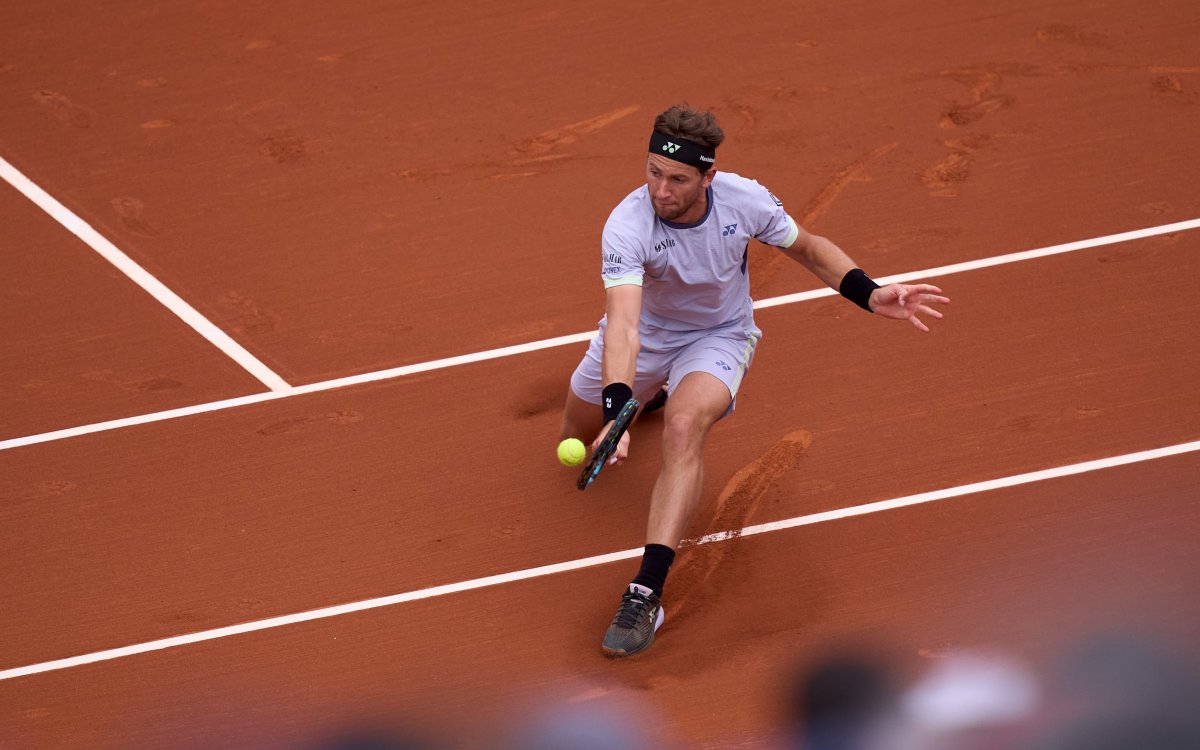Hong Kong China: Though the event of dressage does not require jumping over hurdles and racing against time, the four members of the Indian dressage team had to cross obstacles to bring glory to the country at the Asian Games in Hangzhou on Tuesday.The team, comprising Sudipti Hajela of Indore, Divakriti Singh of Jaipur, Anush Agarwalla of Kolkata and Hriday Chedda of Pune, had to literally fight many battles to make it to Hangzhou. On Tuesday, they made history by winning the first gold medal in dressage and the second medal ever in dressage in 41 years after the bronze won in the Dressage Team event when the sport made its debut in 1982 at New Delhi.
The team of Sudipti (up on Chinski), Divyakriti (Adrenalin Firfod), Hriday (Chemxpro Emerald) and Anush (on Etro) scored 209.206 percentage points to finish ahead of hosts China, who scored 204.882. Hong Kong China won the bronze medal with a score of 204.852.
Agarwalla led the scoring for India with 71.088, Hriday was second with 69.941 points, Divyakrit scored 68.176 while Sudipti Hajela had a score of 66.706 as they helped India top the standings.
However, all this could have not happened if the four young riders had not preserved and fought their way past many hurdles on their way to Hangzhou.
There were controversies related to the selection of the equestrian team, though not many about the dressage team, the federation was not in the mood to send the team to the Asian Games as not many expected them to win a medal. No Indian has won a medal in dressage in 41 years and there were not many expectations.
There were issues with funding for the team as several people opposed their inclusion in the squad.
And then the Chinese government made things more difficult for the riders by ruling that horses from India would not be allowed into the country. The riders had to make a mad scramble to pick horses from Europe that met the criteria set by the Chinese authorities. The horses also had to undergo difficult quarantine in China before they could participate in the Asian Games.
The four riders remained steadfast in their approach and did not relent in pursuing the matter and eventually landed in Hangzhou.
“Winning a medal after facing so many challenges and issues definitely gives us an incredible feeling,” said Anush over the phone after their victory on Tuesday.
“It has been a very long journey, very challenging and we gave it our all. We all made it work. Everything worked in the end and we managed to win this medal. It is a very, very big win for India after so many years. None of us was actually able to believe it when we were in that moment but we gave it our 100 per cent,” said Sudipti Hajela.
Anush Agarwalla credited the camaraderie in the team and the incredible bond that they shared for the victory.
“It is unbelievable to have won gold here, it has not been an easy journey for us to be here. We have all worked hard for many, many years. We have been away from our families and lived alone in Europe. We have sacrificed a lot. All of us shifted to Europe at quite a young age and we have all sacrificed a lot — our families, our coaches — all have had a role. It has been a lot of hard work and we had the whole team behind us. It was quite emotional for us, all members of the squad were shouting for us, cheering us. I was the last rider to go for India and after that, there were a few more riders and once we realised that India had won the gold, we were all ecstatic,” said Anush later.
What makes this achievement even more incredible is that all of them have not spent a lot of time with the horses that they rode at the Asian Games.
They had to make a mad dash to Europe to pick the horse that met the criteria and form a bond with it. In dressage, the coordination between the horse and rider takes time to develop as they have to have perfect coordination to complete the predetermined exercises in three different paces — walk, trot and canter, and show a smooth transition from one to another.
Anush said he found his horse only around February-March and has spent less than half a year with it. The same was the case with others.
But in the end, they overcame all obstacles to achieve one of the greatest victories in this sport for India — winning a gold medal in equestrian for the first time after four decades.
Hriday Chheda hoped that their triumph would inspire the next generation of Indian riders to pursue the sport with passion and not give up in the face of opposition and apathy.
“We don’t want the country to wait for 42 years again for another medal in dressage,” he said.



